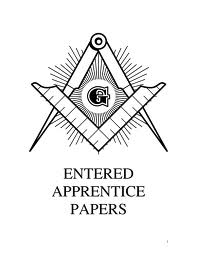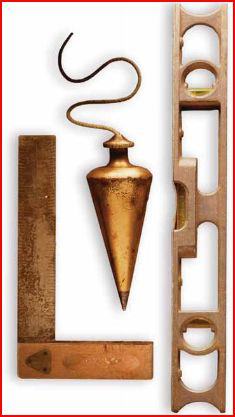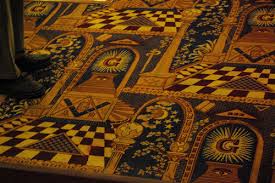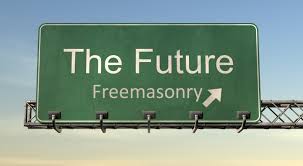Masonic Customs: Then and Now
A discussion of relevance regarding Masonic Customs in the 21st Century
presented at the 59th Annual Midwest Conference on Masonic Education, Omaha, Nebraska, April 26, 2008
by Tim Couch, DDGL 34th Masonic District of Missouri
Good morning Brethren. I bring greetings from the Masons of the great State of Missouri.

Missouri Masonic Certificate – Signed by Harry Truman
When I was first approached about speaking at this conference I was handed a stack of research and a list of web sites, and I was told my topic would be “Masonic Customs – Then and Now.” It seemed pretty straightforward at the time, a twenty minute presentation on the customs of Masonry through the ages. So, I began reading the research and browsing the web sites and taking notes and organizing my thoughts. And then, I came across this: “One ancient regulation forbade Masons from partaking in games of chance except at Christmas time.”
And I thought……why? Why, if Masons were forbidden from gambling would they be allowed to partake at Christmas time? I racked my brain to come up with a reasonable explanation for this regulation. I searched the Internet but that was it, just that one sentence with no elaboration and no explanation. I knew there had to be good reason for it, but I couldn’t for the life of me figure out what it might be. Finally, I said to myself, “Mine is not to question why. Our ancient Brethren had good reason for it and that’s all that matters,” and I moved on with my research.
But that little “why?” kept coming back to haunt me. I found myself asking “why?” every time I read of another custom. It’s easy enough to understand why from a societal or organizational point of view. Our customs, whether societal or Masonic, teach us the proper way to behave. But, Freemasonry is also about improving ourselves as individuals, so there had to be more to these Masonic customs than merely learning proper behavior. There had to be hidden lessons, secret meanings. So, I began to dig deeper and some interesting things revealed themselves.
Masonic Customs, to cast a wide loop, encompasses every public and almost every private interaction between two or more people. We’re going to break down these interactions and view them from a Masonic standpoint using the three steps delineated upon the Master’s carpet.
 On the third step, the top step is our Masonic ritual. When performed properly Masonic ritual is a beautiful thing. We use it during the Degrees to bring increasing amounts of Light to our candidates, and we use it to transmute the Lodge from one tiled state to another. Every word, every pronunciation, every enunciation matters; every step is measured and precise; every movement prescribed. At least that’s the way we do it in Missouri. I can only presume that’s how you guys do it as well.
On the third step, the top step is our Masonic ritual. When performed properly Masonic ritual is a beautiful thing. We use it during the Degrees to bring increasing amounts of Light to our candidates, and we use it to transmute the Lodge from one tiled state to another. Every word, every pronunciation, every enunciation matters; every step is measured and precise; every movement prescribed. At least that’s the way we do it in Missouri. I can only presume that’s how you guys do it as well.
On the second step we have Masonic decorum. These are our ceremonies or demonstrations which, though performed in public, have specific rules or guidelines as to how we are to behave. These would include Masonic funeral services, the open Installation of Officers ceremony, the honoring of distinguished Brethren, and others. Although Masonic decorum has specific guidelines of behavior these guidelines are not fixed as is our ritual. They can be altered to suit the situation or circumstance.
And then on the lower step we have what we will call our Masonic manners. These are exactly as they sound: saying please and thank you, waiting to be recognized before speaking, not interrupting while someone else is speaking, ladies first and monkeys last as my wife says. Basically, Masonic manners are the same manners that Mom and Dad drilled into you as a child, the same manners that in today’s increasingly casual society we witness less and less.
The theme of this conference, Relevance of Masonry in the 21st Century, begs the question “Are our Masonic Customs relevant?” Ritual, decorum, manners; are these things relevant in today’s society? Will these things be relevant into the 21st Century?
 First off, what do we mean by relevant? Most any standard dictionary will tell you that anything that has a bearing on or connection with the subject at issue is relevant to that issue. But if we dig a little deeper we find that something is relevant if it possesses social applicability. So, do our Masonic customs have social applicability? Are they applicable in today’s society? I offer my story as one example of the social applicability of our Masonic Customs.
First off, what do we mean by relevant? Most any standard dictionary will tell you that anything that has a bearing on or connection with the subject at issue is relevant to that issue. But if we dig a little deeper we find that something is relevant if it possesses social applicability. So, do our Masonic customs have social applicability? Are they applicable in today’s society? I offer my story as one example of the social applicability of our Masonic Customs.
Brethren, I stand before you today because of Masonic customs. Or, to be more precise I am able to stand before you today because of our Masonic customs. Fear of public speaking is recognized as one of the most common phobias, possibly affecting 75% of all people. The Book of Lists consistently lists fear of public speaking as one of our greatest fears, often even greater than that of death.
As a young student whenever I could not avoid doing an oral report I was a mess. When my turn finally came I would force myself up from my desk and trudge to the front of the classroom. Turning to face the class felt like turning to face a firing squad. I would read my report as quickly as I could, and then scurry back to my seat, all without ever looking up. I was literally terrified of speaking in public.
During my first year of college I enrolled in a public speaking class because my adviser thought it would be good for me. To this day that class stands as the only “F” on my permanent transcript.
For the next twenty years I avoided any situation that might place me in a position of having to speak in a public forum. I was an adult. I didn’t have to. Then I became a Mason.
After my 1st Degree I was told about these things called “Proficiencies” and then they said “Here’s how we’re going to help you memorize them.” And I said, “I can do that.”
 After I had memorized each Proficiency I was encouraged to demonstrate what I had worked so hard to learn by standing up in Open Lodge and reciting it. And, I was told we’re going to be there to help you do it. And I said, “I can do that.”
After I had memorized each Proficiency I was encouraged to demonstrate what I had worked so hard to learn by standing up in Open Lodge and reciting it. And, I was told we’re going to be there to help you do it. And I said, “I can do that.”
Then I was asked to be the Senior Deacon of the Lodge. I watched and I listened and I learned, and before long I was standing at every meeting and reciting the duties of the Senior Deacon. It felt good and I was proud to be able to do that.
Then I was told that, traditionally, a part of the Senior Deacon’s duties was to deliver the Stairway Lecture. I’m a traditional kind of guy so I said, “I can do that.”
Today, in the Lodges that I frequent, they have taken to adding a portion in the Closing ritual when they ask, “Has Brother Couch anything to offer?”
Now, you guys may not see it but I consider myself to be a more competent, confident and capable man than I used to be, and I credit a great deal of that to our Masonic Customs. What Freemasonry in general and Masonic Customs in particular has done for me, and for countless others, is to make it possible for us to step out of our comfort zone in an environment of support and encouragement. And by doing so it enables us to become more the man we want to be.
So, are our customs relevant in today’s society? Do they have social applicability? I don’t think there has ever been a time when they were more relevant than they are today.
Funny thing about relevance, though. It’s part of the big picture, the grand scheme, and oftentimes we don’t recognize something as being relevant to us as an individual until we have gained the perspective of looking back on it across time.
For instance, way back when I first became a Mason had the Brethren come to me and said, “If you do this it will help you to overcome your fear of public speaking.” I would have said, “No thanks, I have no need to speak in public.”
Or if they had said, “We used to be required to memorize this stuff, but it’s no longer a requirement so it’s up to you.” I probably would have said, “Thanks, but I’ll pass.”
But instead, they said, “This is the way it was done by generations past. We strongly encourage you to do it this way, and this is how we can help you to do it.” And then I said, “I can do that.”
That’s one beauty of Masonry. It gives us the tools we need, sometimes without our even knowing we need them, to become more than we are. Our customs are tools just like the many other tools we have in Masonry for teaching, learning, and understanding ourselves and our fellowman.
Okay, let’s take a look at some these potentially life altering Masonic Customs.
Actually, this first item is more of an interesting trend that showed up during the research for this presentation. It seems that every Lodge in North America that has been in continuous service for more than two hundred years began in a tavern or pub. In fact all four of the original Lodges that combined to form the Grand Lodge of England in 1717 held their meetings in the anterooms of taverns and pubs. While this is obviously not a Masonic Custom logic would seem to dictate that if we want future Lodges to last for hundreds of years….…………..well, I think you can see where this is going.
We have represented at this conference thirteen different Masonic jurisdictions, and obviously our Masonic Customs as we have defined them are going to differ, from slightly to somewhat, in all those jurisdictions. Just as our ritual from one State or Province to another is very familiar it is also considerably different. So it is with our Masonic decorum. Our ceremonies, though similar in function, are distinctly different in practice. Even manners can not be said to be the same all over the world.
So, there would be little point in our discussing the specifics of Masonic Customs. There are numerous sources for that specific information in each jurisdiction. Every Grand Lodge produces manuals on the various Lodge Programs and Protocols, Officer’s Manuals, Manuals on Ceremonies, and of course the Constitution and Bylaws. There are also very knowledgeable and wise committee members, Grand Lodge officers, District Officers, Past Masters and Brethren that can help sort out the proper way of doing things. Simply put, “When in doubt, ask for help.” As my wife has pointed out to me on numerous occasions there is no shame in stopping to ask for directions.
While there is little point in our discussing specifics, however, there are certain principles of our Masonic Customs that do encompass the whole. Most of these are simple common sense, but they need to be recognized as Masonic Customs because we sometimes forget to use our common sense.
If a Brother attending Lodge is infirm, whether due to age, illness, or injury, he should be assisted so far as he requires and so far as he will allow. If an infirm Brother is unable to attend Lodge meetings the Master should, on occasion, remind the Brethren of his situation and see that he receives an occasional visit from a representative of the Lodge.
The anteroom, or Tyler’s room, is a part of the Lodge room. The state and condition of the Tiler’s room is often the first impression a visiting Brother gets of the Lodge so it should reflect the care and respect the members have for the Lodge as a whole. By the same token the conduct of Brethren in the anteroom should reflect and respect the seriousness of the work being conducted inside. Loud talking, laughter, horseplay, anything that can be heard through the outer door will distract the Brethren working inside and detract from the meaningful experience we want for the candidate.
Likewise, the preparation room is a part of the Lodge room. In this room the candidate is prepared to take one of the most important first steps of his life. The room should be clean, uncluttered, and private. The conduct of the Officers attending the candidate should reflect the seriousness of the obligation that the candidate is about to come under. He does not need to know anything of what will happen within, only how and when to respond to those questions directed to him. All will be explained in due course.
 Balloting on a petition is a sacred and secret event. When we place a white ball in that ballot box we are saying this is a man that I would be willing to risk my life for. Likewise, when we cast a black cube we are saying this man is unworthy of the same promises I have made to all other Master Masons. It doesn’t get much more serious than that. Our behavior when Balloting on a petition should reflect the seriousness of the statement we make with that ballot.
Balloting on a petition is a sacred and secret event. When we place a white ball in that ballot box we are saying this is a man that I would be willing to risk my life for. Likewise, when we cast a black cube we are saying this man is unworthy of the same promises I have made to all other Master Masons. It doesn’t get much more serious than that. Our behavior when Balloting on a petition should reflect the seriousness of the statement we make with that ballot.
“The internal and not the external qualifications of a man are what Freemasonry regards.” This little jewel of a Masonic Custom is so important that it is included in the 1st Degree Lecture and the 2nd Degree Charge. Illustrious Brother Albert Mackey considered it to be one of the Landmarks of Freemasonry. I heard it said recently that one of the causes of our declining membership in recent times is that we are not elite enough anymore, that we should be more restrictive in our acceptance of new members. Freemasonry is and always has been an elite organization. Not because only the elite of society need apply, but because Freemasonry’s tenets and teachings appeal to that part of a man that aspires to greatness. Yes, we must cautiously and constantly guard against cowans and eavesdroppers, but we do not need to be more restrictive. We need to be more instructive. Freemasonry is not made up of elite men. Freemasonry makes men elite.
When, during the business meeting of the Lodge, a Brother has something to say it is Masonic Custom that he stand and receive permission from the Master before speaking. While the method of requesting that permission varies among jurisdictions it is uniformly Masonic that he is standing when he speaks. This is intended, I believe, to teach us several lessons. First, if a man believes what he has to say is important enough to stand alone and speak his mind he deserves to be heard, and everyone in the room deserves the opportunity to hear him. And, just as trivial matters have no place in the business meeting of the Lodge they can only serve as a distraction from the important things in life.






You must log in to post a comment.